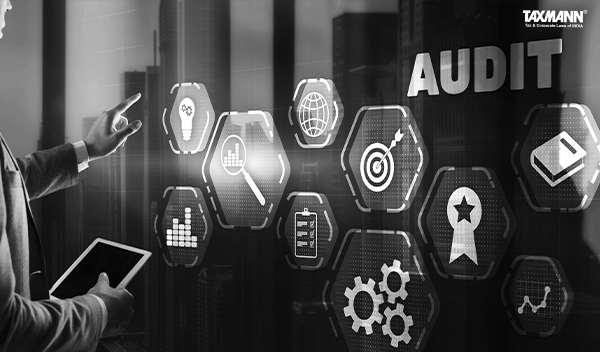
AI in Auditing refers to the use of artificial intelligence technologies to enhance the auditing process. AI systems can analyze vast amounts of data rapidly and with high precision, enabling auditors to identify anomalies, trends, and risks that might not be obvious through traditional methods. Overall, AI in auditing can lead to more efficient and effective audits by enhancing the auditor's ability to analyze data, identify risks, and ensure compliance.
Table of Contents
- Introduction
- The Impact of AI on Auditing
- The Importance of Upskilling in the Era of AI
- Enhancing Audit Quality with AI
- Human-AI Collaboration: The Way Forward
- Conclusion: Pioneering the Future of Auditing
1. Introduction
Auditing has always been a field where precision, accuracy, and meticulous attention to detail are non-negotiable. Auditors are well aware of the pressures and deadlines that come with their responsibilities, as well as the high stakes involved if something goes wrong. However, recent technological advancements, particularly the rise of Artificial Intelligence (AI), are revolutionizing the auditing industry, offering a way to not only ease these pressures but also enhance the quality and efficiency of audits.
2. The Impact of AI on Auditing
AI is making waves in various industries, and auditing is no exception. The integration of AI into auditing processes is transforming the way auditors work, allowing them to focus more on strategic tasks while AI handles repetitive, time-consuming elements. For instance, AI-powered tools can automate data entry, extraction, and reconciliation tasks, significantly reducing the chances of human error and increasing efficiency. This shift not only streamlines the audit process but also enables auditors to meet tight deadlines with greater ease.
Moreover, AI enhances risk assessment by utilizing sophisticated statistical and machine learning techniques to identify potential risks and anomalies in financial data. This enables auditors to pinpoint areas that require further scrutiny, leading to more accurate and insightful audits. Additionally, AI can uncover complex relationships and patterns in data that would be nearly impossible for a human to detect, providing deeper insights and improving fraud detection.
3. The Importance of Upskilling in the Era of AI
As AI becomes increasingly integrated into the auditing profession, the necessity for auditors to enhance their skill sets is becoming more apparent. The rapid advancements in technology mean that auditors must now develop a solid understanding of AI, data analytics, and machine learning to stay competitive.
However, upskilling isn’t just about mastering new tools. It also involves honing critical thinking and problem-solving abilities to effectively interpret the insights provided by AI. Additionally, soft skills like adaptability, creativity, and collaboration are becoming just as vital as technical expertise, ensuring that auditors can successfully navigate the evolving digital landscape.
4. Enhancing Audit Quality with AI
AI plays a crucial role in boosting the quality of audits by automating tasks like data analysis, anomaly detection, and fraud identification. With AI’s ability to process large datasets, it can reveal insights and spot irregularities that might go unnoticed by humans. This enhances the accuracy of audits and minimizes the chances of missing important information.
Furthermore, AI improves risk assessment and predictive analysis, enabling auditors to forecast risks more accurately using a wide array of data, such as company-specific, industry-specific, and broader economic indicators. This leads to more comprehensive audits and a deeper understanding of potential risks and opportunities.
5. Human-AI Collaboration | The Way Forward
Despite the benefits of AI, the human element in auditing remains crucial. Auditors must understand the limitations and capabilities of AI tools, exercising professional judgment when interpreting AI-generated insights. In complex or sensitive areas, human involvement in decision-making processes is essential to maintain contextual understanding, ethical reasoning, and professional skepticism.
To ensure a successful collaboration between humans and AI in auditing, organizations should focus on upskilling their workforce. Identifying skill gaps, aligning leadership to support reskilling programs, and integrating learning into daily workflows are key strategies for building a workforce that is ready to thrive in the AI-driven audit landscape.
6. Conclusion | Pioneering the Future of Auditing
As AI continues to reshape the auditing landscape, auditors must proactively adapt to this technological evolution. Embracing AI is no longer optional—it’s essential for staying relevant and effective in the profession. Continuous learning and skill development are crucial as auditors integrate AI into their work, enhancing their ability to perform more accurate and insightful audits.
The future of auditing lies in the harmonious integration of human judgment with AI-driven insights. This partnership will bring about new levels of precision, efficiency, and transparency in financial reporting. Those who are willing to evolve with these changes, investing in their own growth and skill enhancement, will lead the charge in defining the next era of auditing, setting new standards and driving the profession forward.
The post Evolution of Auditing – Transforming Audit Processes | Enhancing Quality appeared first on Taxmann Blog.


